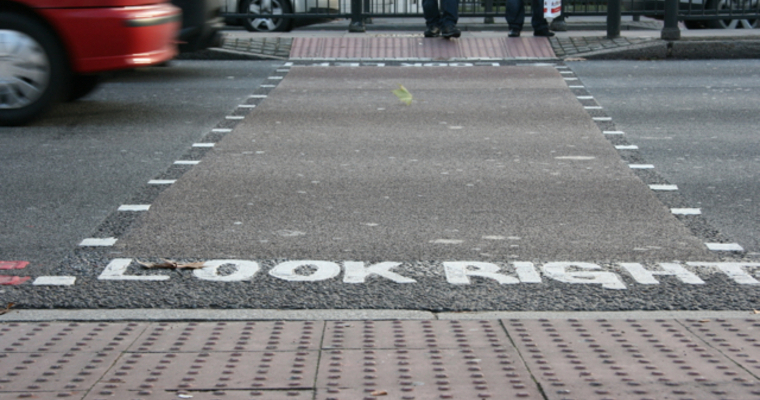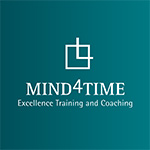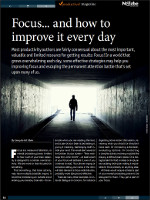In the last article, I've introduced two virtual characters that live together within our mind: The General - who decides - and The Robot - who executes. There are some typical characteristics of each. Paying attention and recognizing them can prove of good value to optimize our efficiency throughout the day.
Characteristics of The General
First of all, The General will only work if he really doesn't have a choice. Maybe a bit lazy, or simply scared of making mistakes and regret later, he uses any kind of excuse to avoid having to decide stuff.
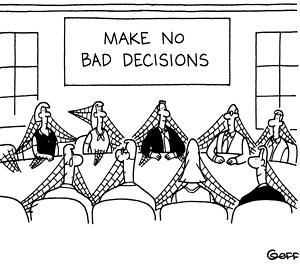
He may even let The Robot engage in some strange activities like cleaning, organizing or playing superhero with a colleague's task, whatever get's him a plausible excuse to escape tasks that require difficult decisions.
On the other hand, deep inside he feels pressed when he knows he should be moving the important issues forward (instead of those excuses). Don't let fear of wrong decisions win and block him. Recognize that mode and do something! Find out when The General has put The Robot covering for him with lots of plausible action.
Characteristics of The Robot
The Robot, on the contrary, is really hard-worker, eager to execute and complete stuff. Whatever gives him a clear notion of "done", "accomplished". For instance, The Robot just loooves to pop bubbles from that package wrap that protects fragile items: the distinctive clear "pop" delights him! Checking e-mail, clicking on a link, following a pop up window, reading text messages, inserting logins and passwords, browsing windows, and other pressing-buttons-mechanical activities are very much his type.

Of course, he hates unclear never ending stuff. Feed him a huge list of possible prospects to contact and he'll be miserable. Just the mention of the words
Thesis or
Report can make him shiver. He'll try everything to avoid those and get back to any easy-success-in-front-of-me tasks. Having the General clearing instructions and success criteria (e.g. smaller partial tasks) and eliminating distracting inputs from his context will help him a lot.
Possible Deadlock - the no-decision pitfall
We've seen that the process of deciding - projecting and evaluating options - may require a really big chunk of mental space or "mental RAM". In fact, the more difficult and unclear the choice, the more it will demand further projecting and further evaluating. Easy choices don't usually get blocked - it's when it's not clear what's best, that we need to further analyze and that demands a lot of mental space.
At the same time, when The Robot feels pressure he'll get even more hungry for execution. That's the way he thinks will better solve the situation - getting many things done. Whatever he finds in front of him, he'll try to do quickly. Checking email, for example, is a very natural Robot's procedure under pressure. In fact, he may get too busy to realize that, very likely, the real pressure is coming from important items blocked by a no-decision.
Now, do you see the danger of a deadlock here? Undecided important stuff pending + many things on your

mind -> pressure -> Robot takes over doing lots of evident-in-front-of-me execution -> nothing really valuable happens as time passes -> more pressure -> even less mental space -> even less decisions made -> pending important stuff stays blocked and the Robot tries even harder to execute lots of evident-in-front-of-me tasks...
Stop the cycle
Deciding doesn't take time. You say "I didn't have the time", but often the truth is you didn't have the mental availability. And you won't have it, until you gain control of this cycle, by stopping the Robot, sweeping your mind and forcing the General to make some important (maybe risky) decisions. Guide your Robot into high-value execution. Forget doing many things. Do the valuable difficult things - the ones that make the difference! That's what will get you a productive day!
How many decisions have you made today?
I suggest you experiment it as a productivity measure: how many important decisions have you made today since you arrived at the office? Try it out for some days. Check your best "won" days. When you leave the office with a feeling of "mission accomplished", ask the same question. Maybe you've decided to call that difficult customer. Maybe you've decided to speak with your boss about a difficult issue. How many relevant decisions? Count them and take your own conclusions.
On my next article, I'll be talking a little bit more on decision blocking and unblocking.
Until then, try a TRICK!...
Gonçalo Gil Mata
www.WhatsTheTrick.com
NOW TRY A TRICK!...
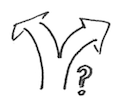
|T| Make a difficult decision early in the day...>>
see more TRICKS - vote and comment on them!
 He may even let The Robot engage in some strange activities like cleaning, organizing or playing superhero with a colleague's task, whatever get's him a plausible excuse to escape tasks that require difficult decisions.
He may even let The Robot engage in some strange activities like cleaning, organizing or playing superhero with a colleague's task, whatever get's him a plausible excuse to escape tasks that require difficult decisions. Of course, he hates unclear never ending stuff. Feed him a huge list of possible prospects to contact and he'll be miserable. Just the mention of the words Thesis or Report can make him shiver. He'll try everything to avoid those and get back to any easy-success-in-front-of-me tasks. Having the General clearing instructions and success criteria (e.g. smaller partial tasks) and eliminating distracting inputs from his context will help him a lot.
Of course, he hates unclear never ending stuff. Feed him a huge list of possible prospects to contact and he'll be miserable. Just the mention of the words Thesis or Report can make him shiver. He'll try everything to avoid those and get back to any easy-success-in-front-of-me tasks. Having the General clearing instructions and success criteria (e.g. smaller partial tasks) and eliminating distracting inputs from his context will help him a lot. mind -> pressure -> Robot takes over doing lots of evident-in-front-of-me execution -> nothing really valuable happens as time passes -> more pressure -> even less mental space -> even less decisions made -> pending important stuff stays blocked and the Robot tries even harder to execute lots of evident-in-front-of-me tasks...
mind -> pressure -> Robot takes over doing lots of evident-in-front-of-me execution -> nothing really valuable happens as time passes -> more pressure -> even less mental space -> even less decisions made -> pending important stuff stays blocked and the Robot tries even harder to execute lots of evident-in-front-of-me tasks...

